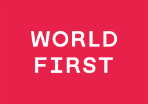Daniel is Founder and CEO and has 20 years of experience in the international finance world focusing on cross-border payments, technology and the property sectors. Daniel is widely quoted as an expert within the money transfer industry including by The Economist, The Wall Street Journal, Reuters, CNBC and Bloomberg. Daniel is passionate about helping consumers and businesses find the best and most efficient ways to transfer money internationally.
Frequently asked questions
How we calculate the savings
Contents
Summary
Oman’s money transfer regulations
Oman’s monetary and regulatory authority
Oman’s economic background
Foreign investment in Oman
Taxes in Oman
Currency
Summary
The official currency of Oman, the Omani rial (OMR), is currently pegged to the US dollar. There are no restrictions on international money transfers to or from Oman, and the Omani government does not require visitors to declare currency when entering the country. The most popular currency corridor associated with the Omani rial is the INR to OMR corridor.
Oman’s money transfer regulations
Oman has liberal policies for sending money into or out of the country. It does not restrict remittances or money transfers abroad for any type of capital transfer, including equity, debt, interest, dividends, royalties, management or service fees, or personal savings. The ability to exchange or acquire foreign currencies is freely available, and the country does not have any reporting requirements on private capital moving into or out of the country. Although there is some discussion within the Gulf Cooperation Council (GCC) about establishing a common currency, Oman has publicly stated that it would not join such an agreement, and intends to keep the Omani rial as its official currency, as well as its peg to the US dollar.
Oman’s monetary and regulatory authority
The Central Bank of Oman (CBO) is responsible for setting currency controls for the rial and for overseeing and regulating all currency exchange transactions for the country. The CBO has little to no restrictions on capital flows and FX payments into and out of the country, and the government of Oman has recently made it even easier for individuals and investors to transfer money or capital, or to make remittances, either while living in Oman or living abroad.
Oman’s economic background
Oman’s geographic location along busy shipping lanes just outside the Persian Gulf and the Strait of Hormuz provides considerable economic benefits and growing opportunities for trade. The country recently signed a trade agreement with the US – the US-Oman Free Trade Agreement – and offers a business-friendly environment, with a focus on business law, including an emphasis on contract sanctity, respect for free markets, and strong property rights. Oman has a modern infrastructure, a growing transportation network, and a government that is willing to invest in the country’s infrastructure, facilities and educational systems.
Foreign investment in Oman
Oman has made considerable investments to improve its infrastructure, education, healthcare and manufacturing sectors, and has worked to root out corruption. These efforts are beginning to attract new foreign direct investment (FDI) into the country. In the past few years, Oman’s government has implemented anti-corruption campaigns to investigate, convict and sentence officials, which has restored some faith in its ability to provide a trustworthy, stable environment in which foreign investors can feel comfortable. International firms are increasingly recognising Oman’s potential and opportunities for growth. The country is currently in the middle of implementing a massive infrastructure programme that will further modernise the country while providing much-needed jobs and investment opportunities.
In an effort to increase foreign investment, Oman has begun improving its investment framework. The government of Oman has also been promoting its improvements and increased investment in sectors such as healthcare, manufacturing, higher education, renewable energy, aquaculture and tourism. The government has tasked the Public Authority for Investment Promotion & Export Development (PAIPED), also known as “Ithraa”, with making the process of business formation and private sector development easier and more accessible for foreign investors. PAIPED has also been tasked with ensuring that potential foreign investors understand government regulations in Oman. The Ministry of Commerce and Industry (MOCI) also offers a “one-stop shop” that provides guidance and assistance for the approval process and path leading to government clearances for establishing a new business, expatriate worker visa approvals, and environmental permitting.
According to the 2019 Index of Economic Freedom, Oman is ranked the seventh freest country out of 14 in the Middle East and North Africa (MENA) region, and 88th in the world.
US firms are allowed to establish and own businesses in Oman without a local partner. US firms offering services in healthcare, distribution, computer-related technologies, financial services, communications, as well as select other services, have been given increased opportunities to conduct business in Oman through this trade agreement as well. Non-US service providers, on the other hand, will not be approved for business operations if they are not at least 30% owned by an Omani who holds a relevant degree and has a current practice within the service provider’s specialisation.
Taxes in Oman
Currently, there are no taxes on personal income, capital gains, inheritance or sales in Oman. Shipping companies and foreign airlines are exempt from taxation, due to reciprocal treatment of these companies from foreign governments. Private hospitals, private sector schools and institutes of higher education are also currently exempt from taxes.
Currency
The rial is the currency of Oman. It is divided into 1,000 baisa. Currently, baisa coins are circulated in denominations of 5, 10, 25, and 50 baisa. In 1970, rial saidi was made the official currency of Oman, and the government of Oman issued banknotes in denominations of 100 baisa, ¼, ½, 1, 5 and 10 rial saidi. In 1973, the Omani rial replaced the rial saidi. In 1977, the Central Bank of Oman issued additional banknotes of 20 and 50 rial notes, and then a 200 baisa banknote in 1985.















